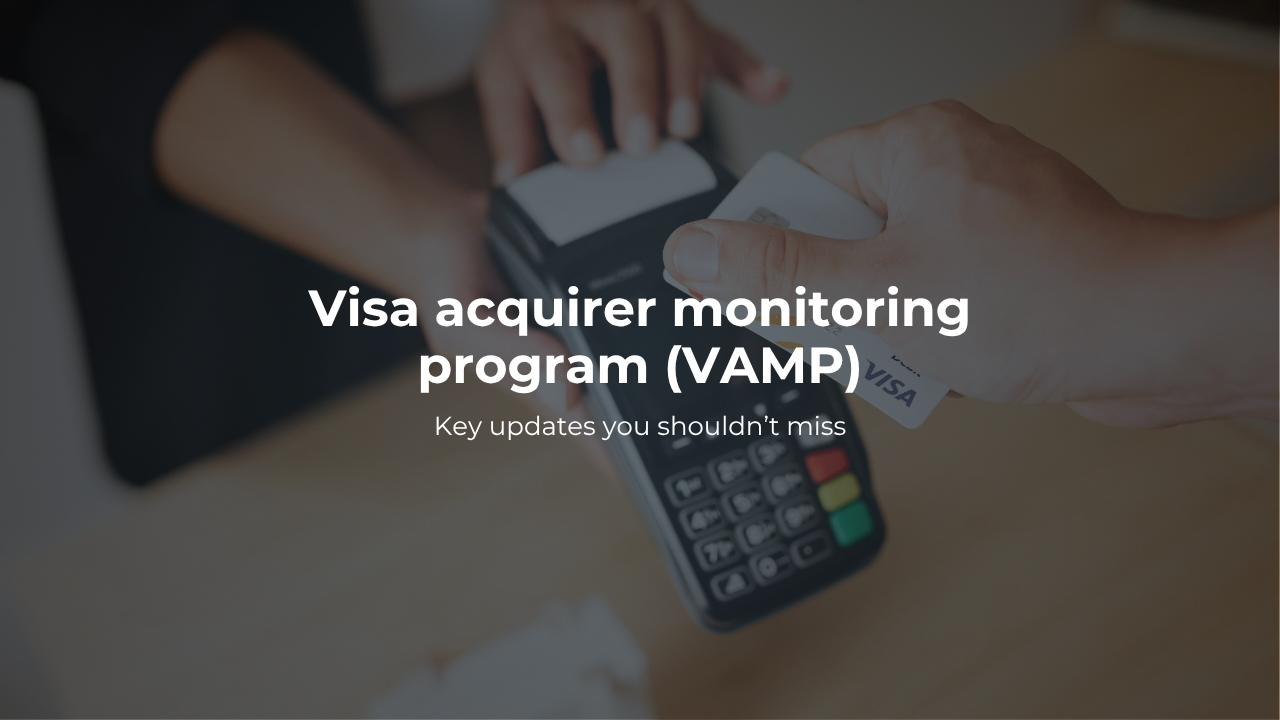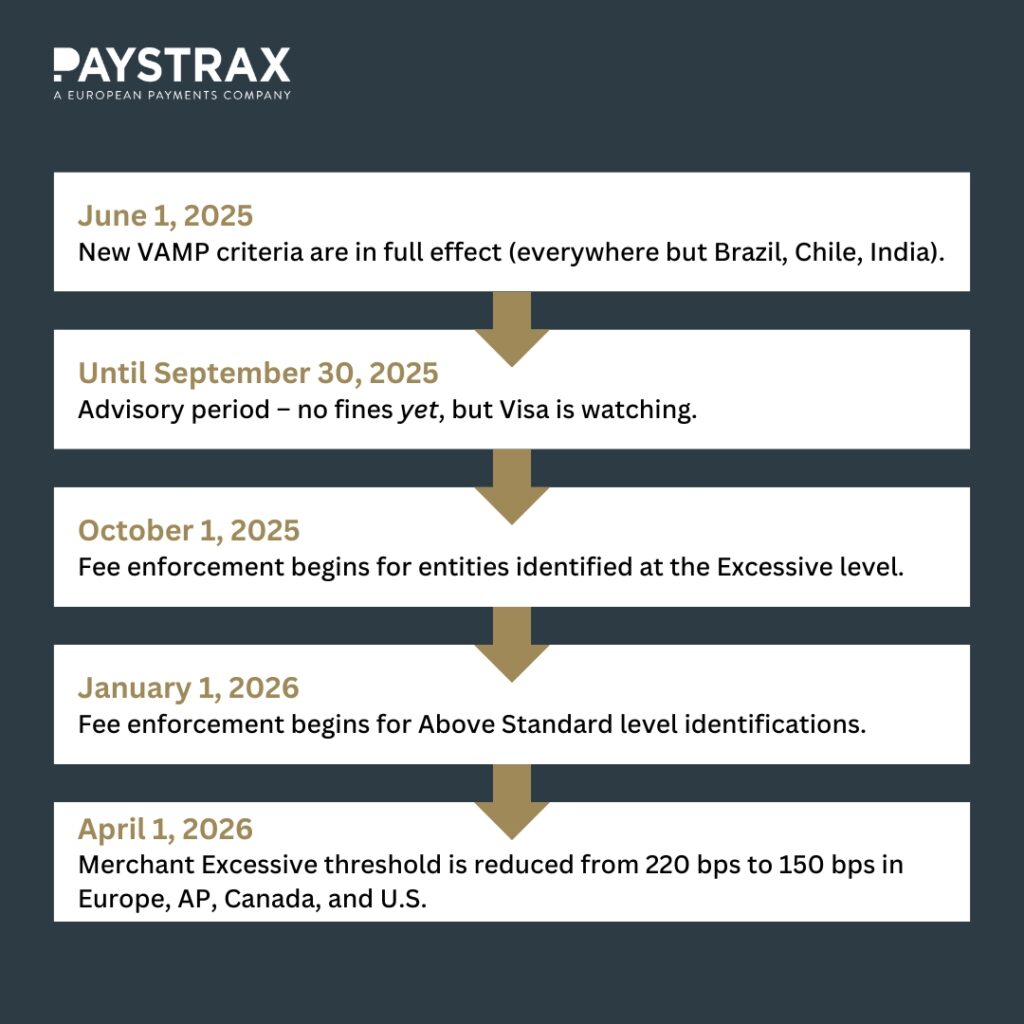Visa isn’t wasting any time. Just two months after rolling out VAMP in Europe, they’ve already updated the rules. As of June 1, 2025, new criteria for the VAMP are now live globally (except Brazil, Chile, and India), bringing clarity (and complexity) to the way disputes and fraud are now tracked.
If you’re still getting to grips with the VAMP ratio, you’re not alone. Here’s what changed, and what it means for merchants and acquirers.
Important dates to remember
What’s new in the VAMP ratio?
Previously, the VAMP ratio tracked only fraud (TC40) and non-fraud chargebacks (TC15). But now, all fraud and non-fraud disputes are included. That’s Visa’s aim to manage overall dispute friction across the ecosystem, not just fraud risk.
The updated VAMP ratio is:
(TC40 fraud cases + TC15 processed disputes) / TC05 total settled transactions
At first glance, this may raise concerns as more disputes mean more cases counted toward the ratio. But there’s some good news too.
So, what actually changed?
TC40 exclusions: TC40s that meet Compelling Evidence 3.0 standards and disputes resolved via RDR, CDRN, or Ethoca may be excluded from the ratio, depending on data extract timing.
Higher thresholds: to account for the added volume from fraud disputes, Visa increased the identification thresholds for Above Standard and Excessive levels.
Higher minimum entry counts: merchants and acquirers now need 1,500+ combined fraud and dispute cases per month to even get flagged.
Lower fees: per-case VAMP fees have been reduced across the board.
| Before | After | |
| Formula | (TC40 + TC15 (non-fraud only)) / TC05 | (TC40 + all TC15) / TC05 |
| Acquirer Thresholds | Above standard: 0.30%
Excessive: 0.50% |
Above standard:0.50%
Excessive: 0.70% |
| Merchant Threshold | Excessive: 1.50% | Excessive: 2.20% |
| Minimum Entry Count | 1,000 | 1,500 |
| Acquirer fees (per case) | Above standard: $5
Excessive: $10 |
Above standard: $4
Excessive: $8 |
| Merchant fees (per case) | $10 | $8 |
What does this mean for merchants?
Even with the expanded definition, most merchants won’t be immediately affected, especially during the advisory period, which runs until 30 September 2025. But that doesn’t mean you should wait.
This update is a signal: Visa wants acquirers and merchants to take a more holistic view of dispute and fraud risk, not treat them as separate issues.
If your chargebacks are under control but fraud is creeping up, or vice versa, the new ratio means both count. So the bottom line is – it’s all connected now. Start investing in both fraud prevention and dispute resolution tools that will all help reduce your VAMP ratio.
Basically:
✅ Track your ratio
✅ Resolve early, always
✅ Upgrade your defences
✅ Talk to your acquirer
If all these changes feel overwhelming, don’t worry – we’ve been tracking VAMP from the start. Read all about it, including how PAYSTRAX helps its merchants stay compliant, in our previous blog post.





